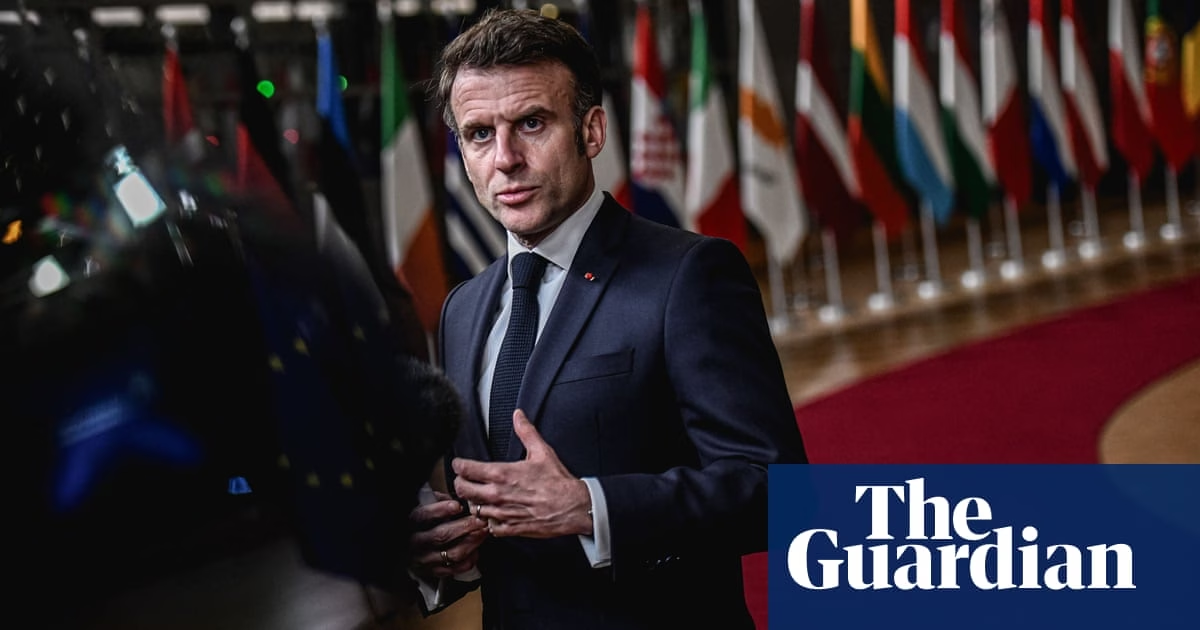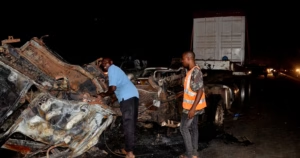<
div>
Good morning. Yesterday, Volodymyr Zelenskyy addressed a European Council summit in Brussels and emphasized the urgency of the EU’s role in Ukraine’s future as Donald Trump turns away. “It’s crucial that our partners’ support for Ukraine doesn’t decrease but instead continues and grows,” he said. And he added: “Europe must always be at the table in discussions about its own security.”
EU countries certainly agree on that, and said yesterday that they were ready to again increase sanctions against Russia – but they are sharply divided on how to achieve it. Meanwhile, after a meeting with western military planners near London, Keir Starmer, yesterday appeared to step back from his pledge to put boots on the ground in Ukraine, saying instead that allied forces would be deployed by sea and air in support of Kyiv’s own forces.
For today’s newsletter, I spoke to the Guardian’s Brussels correspondent, Jennifer Rankin, about the blocs negotiating the future of European security – and the differences in geography, history, and economic reality that stand in the way. Here are the headlines.
Five big stories
Heathrow| London’s Heathrow airport will be closed all day on Friday after a fire at an electrical substation supplying the airport caused a “significant power outage” and left thousands of homes without power. The shutdown at one of the busiest hubs in the world is likely to affect about 1,300 flights.
Climate crisis | The government is “absolutely up for the fight” over net zero, energy secretary Ed Miliband has said, as he accused the Conservatives and Reform of “a total desertion and betrayal” of future generations by failing to tackle the climate crisis. Some Labour MPs fear the government could row back on funding and targets under political pressure.
Middle East| Tens of thousands of Israelis have taken to the streets to call for a new ceasefire in Gaza and to protest against what they say is an attack on the country’s democracy by the right-wing governing coalition of Benjamin Netanyahu.
Interest rates| The Bank of England said UK businesses are freezing their hiring plans in response to Rachel Reeves’s tax increases and amid mounting global uncertainty as it kept interest rates on hold at 4.5%. The bank’s monetary policy committee voted by eight to one to pause its cycle of rate cuts after three reductions in the past year.
UK news | One of Stephen Lawrence’s killers may now accept he was involved in assaulting the teenager, according to a report by the Parole Board. The board said yesterday that David Norris, now 48, will face his hearing in public with the reported support of Stephen’s parents.
In depth: Europe’s defence debate
After the watershed summit earlier this month where European leaders agreed to an €800bn (£670bn) plan to increase defence spending, yesterday’s Brussels meeting was “a lot quieter”, Jennifer said.
But it is a measure of how sharply European foreign policy has shifted that the matters under discussion were still momentous. The European Commission set out more detail on a loan scheme worth €150bn (£125bn) to cover defence investments earlier this week. A plan to send billions in immediate military aid to Ukraine was downgraded to a request to send ammunition. And it remains unclear how many countries will take advantage of a new carveout from debt rules to spend more on their defence – or what exactly might be counted in that category.
“For context, the EU is still divided over how to repay the debts taken on coming out of the pandemic,” Jennifer said. “So it’s not surprising that on how to fund European rearmament, there are political tensions over all of it.”
The frontline | Poland, Baltic and Nordic countries
A glance at a map or history book should make it fairly clear why this group takes the most hawkish view: proximity to Russia. With polls showing consistently high levels of support for Ukraine, “they are Ukraine’s really staunch supporters,” Jennifer said. “They have the strongest recognition of the threat from Russia, and they keep stressing the urgency for Europe to increase defence spending.”
<
p class=”dcr-s3ycb2″>Some supported the proposals to pledge €40bn (£33bn) in EU military aid to Ukraine this
Source: https://www.theguardian.com/world/2025/mar/20/friday-briefing-a-fractured-europe-grapples-with-defence-strategy








